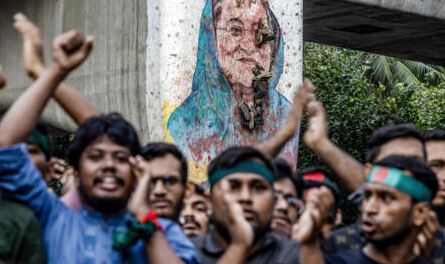DHAKA – The Bangladesh’s new government on Wednesday decided to investigate hundreds of enforced disappearances that took place during the tenure of former Prime Minister Sheikh Hasina.
The local media reported that Rapid Action Battalion (RAB), a paramilitary force known for alleged human rights abuses, and which faced sanctions from the United States for its involvement in extrajudicial killings and enforced disappearances, would also face investigations.
The Hasina administration repeatedly denied these allegations, suggesting that some individuals reported missing may have drowned while attempting to reach Europe.
Following intense student-led protests, Hasina fled to India on August 5, ending her 15-year leadership.
The newly formed five-member committee, led by retired high court judge Moyeenul Islam Chowdhury, will also investigate other paramilitary units, including the Border Guard Bangladesh (BGB). The UN human rights office has noted that both RAB and BGB have records of serious human rights violations, including enforced disappearances and torture.
The investigation, mandated by the interim government headed by Nobel Peace Prize laureate Muhammad Yunus, is set to report its findings within 45 working days.
Sanjida Islam Tulee, who leads a group advocating for the release of those detained under Hasina, welcomed the establishment of the commission. She emphasized the importance of a transparent report and the need for the commission to listen to every family without bias.
Tulee, who along with others seeking missing relatives, met with Yunus earlier this month, called for the return of the missing individuals and accountability for those responsible.
A preliminary report by the UN rights team indicates that over 600 people were killed in the weeks leading up to Hasina’s departure, suggesting that the actual number could be higher.
The day after Hasina’s departure, families anxiously gathered outside a military intelligence building in Dhaka, hoping for news of their missing relatives, though only a few have been confirmed as released.
Human Rights Watch reported last year that over 600 cases of enforced disappearances had been recorded since Hasina assumed power in 2009, with nearly 100 individuals still unaccounted for.
Many of those affected were associated with Hasina’s political opponents such as the Bangladesh Nationalist Party and Jamaat-e-Islami.










